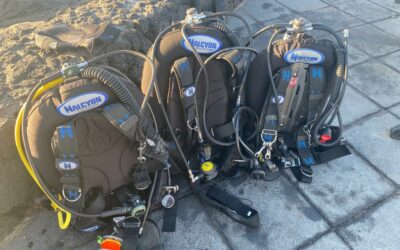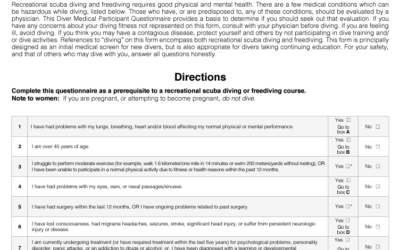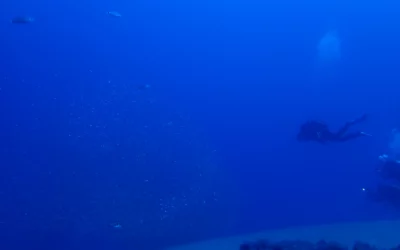Weights vs. Buoyancy Control
Finally, the day has arrived—your long-awaited holiday begins. After eagerly anticipating this trip, you’ve arrived in a tropical country, ready with your diving gear. The guide approaches and asks you, “How many weights do you need?” You check your logbook and respond, “Well, on my last dive I used 8 kg.” With no further questions the guide replies, “Ok, then I will give you 10 kg, just in case you need more.” Be honest, would you just accept the weight or would you be concerned about your buoyancy control?
Why Do Divers Prefer to Dive With Too Much Weight?
Let’s face it—Unfortunately, many dive professionals as well as divers often believe using more weights causes them less trouble underwater compared to just enough weight. They often think it could simplify the process of descending and avoid popping up to the surface, especially during the safety stop. Additionally, like this the professional doesn’t need to carry so much extra weight and can hopefully enjoy the dive as well.
The Misunderstood Skill: Neutral Buoyancy
It’s sad but true—neutral buoyancy is one of the most misunderstood skills in diving. Both professionals and certified divers often overlook the importance of mastering buoyancy control. Proper buoyancy improves your safety, reduces fatigue, and enhances the enjoyment of diving. It also helps you avoid damaging delicate underwater environments.
The Misconception: Is More Weight the Right Choice for Better Buoyancy Control?
Absolutely not! There are multiple negative and even dangerous consequences of diving while overweighted. These outweigh any perceived advantages.
Six Negative Consequences of Diving Over-Weighted
Diving with proper buoyancy is crucial for ensuring a safe and enjoyable underwater experience. However, diving over-weighted can lead to several negative consequences that can affect both the diver and the underwater environment. Here are six key negative consequences of diving over-weighted:
1. Harm to Aquatic Life
Over-weighted divers often have poor control over their movements, leading to accidental contact with marine life. Corals, in particular, are highly vulnerable and can be easily damaged or broken by divers who are unable to maintain neutral buoyancy. This not only harms the delicate ecosystems but also disrupts the habitat of numerous marine species.
2. Increased Risk of Decompression Sickness (DCS)
Being over-weighted can cause divers to struggle with maintaining a controlled ascent. Rapid or uncontrolled ascents increase the risk of decompression sickness, a potentially life-threatening condition caused by nitrogen bubbles forming in the bloodstream and tissues due to rapid pressure changes.
3. Higher Air Consumption
Over-weighted divers expend more energy to manage their buoyancy and stay off the bottom. This increased physical effort leads to higher air consumption, reducing bottom time and limiting the overall diving experience. Efficient air use is critical for extending dive duration and enjoying more time underwater.
4. Greater Risk of Uncontrolled Descents and Ascents
Excess weight makes it challenging to control descents and ascents smoothly. Uncontrolled descents can lead to barotrauma, injury from hitting the bottom forcefully and exceeding the depth and no-deco limits. Similarly, uncontrolled ascents can result in lung over-expansion injuries and other serious complications.
5. Fatigue and Discomfort
Carrying extra weight not only adds physical strain but also increases fatigue and discomfort. Divers may experience muscle fatigue and joint pain, making the dive less enjoyable and potentially affecting subsequent dives. Over time, this can lead to a decreased interest in diving.
6. Missed Learning Opportunities
Diving over-weighted prevents divers from honing their buoyancy control skills. Each dive conducted with improper weighting is a missed opportunity to improve as a diver. Mastering buoyancy is essential for becoming a proficient and confident diver, capable of exploring underwater environments with minimal impact.
Conclusion
Diving with the correct amount of weight is essential for both safety and enjoyment. Diving with too much weight can lead to a range of negative consequences, from environmental harm to increased health risks. By focusing on proper buoyancy control, divers can ensure a safer, more efficient, and environmentally friendly diving experience.
If you want to get some in-water training, the Peak Performance Buoyancy Specialty course will be a great option. However, choose the dive center or instructor wisely and make sure they really understand about buoyancy and train you in detail. Also don’t forget to read Buoyancy Session 1 from our buoyancy workshop and find out how to do a buoyancy check!



